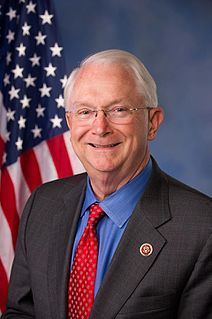A Quote by Dylan Taylor
By 2030, up to 10 percent of the world's gross domestic product could be linked to space in some way.
Related Quotes
Today, you have 20 percent of the world controlling 80 percent of the Gross Domestic Product; you've got a $30 trillion (US) world economy, and $24 trillion of it is in the developed countries... These inequities can't exist. So if you are talking about systemic breakdown, I think you have to look in terms of social breakdown.
Cold-turkey deficit reduction would cause a significant recession. A recent analysis by the Congressional Budget Office estimated that going headlong over the cliff would cause our gross domestic product, which has been growing at an annual rate of around 2 percent, to fall at a rate of 2.9 percent in the first half of 2013.
Between 2001 and 2011, Brazil lifted 20 million people out of poverty and into its growing middle class, and in the last quarter of the twentieth century Botswana's gross domestic product per capita grew faster than that of any other country on the planet. The once-labeled 'Third World' is edging its way into the 'First World.'
And it was back in the mid-1980s, and as I point out in a piece, that was when we are spending about eight percent of our gross domestic product on health care. And even then, we had the impression that so much of the excessive, aggressive medical treatment that took place at the end of life was not only unnecessary but it was cruel.
The political establishment has brought about the destruction of our factories, and our jobs, as they flee to Mexico, China and other countries all around the world. Our just-announced job numbers are anemic. Our gross domestic product, or GDP, is barely above 1 percent. And going down. Workers in the United States are making less than they were almost 20 years ago, and yet they are working harder.
Some people say Russia is running at 50 percent of its gross domestic product under that during the Communist period. In fact, none of the countries seems to have recovered the level that they had under communism, although the other countries in Eastern Europe are doing better than Russia and particularly the Czech Republic seems to be doing modestly well. East Germany I can't count because they have a rich uncle. You have economic benefits which have nothing to do with the workings of the system.


































